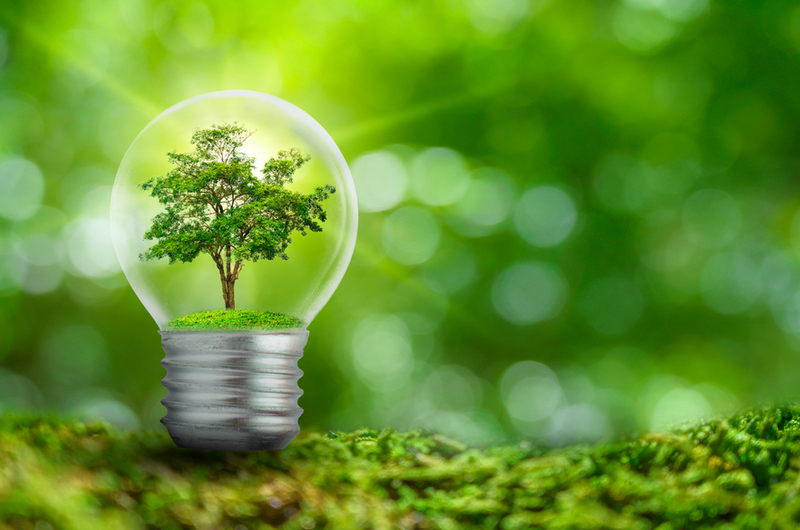Discover effective and eco-friendly sustainable energy solutions to reduce your carbon footprint and contribute to a cleaner planet.
Sustainable energy, also known as renewable energy, is energy that is generated from natural sources that are replenished over time, such as solar, wind, hydro, geothermal, and biomass. Unlike fossil fuels, which are finite resources that produce harmful emissions and contribute to climate change, sustainable energy sources provide a cleaner and more eco-friendly alternative.
As the world faces the consequences of global warming and the depletion of non-renewable resources, sustainable energy has become a crucial component in the shift towards a more sustainable future. By harnessing the power of nature, we can reduce our carbon footprint, create more jobs, and ensure a more sustainable future for generations to come.

What is Sustainable Energy?
Sustainable energy is energy that is generated from natural sources that are replenished over time. Unlike fossil fuels, which are finite resources that produce harmful emissions and contribute to climate change, sustainable energy sources provide a cleaner and more eco-friendly alternative. Some examples of sustainable energy sources include solar, wind, hydro, geothermal, and biomass.
Why Sustainable Energy?
There are several reasons why sustainable energy is important. The first reason is to reduce emissions and combat global warming. Fossil fuels produce harmful emissions that contribute to climate change, which can have devastating consequences for the planet. Sustainable energy sources produce little to no emissions, making them a much cleaner and more sustainable alternative.
The second reason why sustainable energy is important is cost-wise. Renewable energy sources are becoming increasingly affordable and cost-competitive with fossil fuels. As the cost of fossil fuels continues to rise, renewable energy sources will become even more attractive from a financial perspective.
Lastly, there are other reasons to invest in sustainable energy. Sustainable energy can provide energy security, create jobs, and promote economic development. By investing in sustainable energy, countries can reduce their reliance on foreign oil and create new job opportunities in the energy sector.
Types of Sustainable Energy
There are several different types of sustainable energy platforms available today. Each type of sustainable energy has its own unique advantages and disadvantages, and the choice of which platform to use will depend on a variety of factors, including location, climate, and available resources.
Solar energy
Solar energy is one of the most popular types of sustainable energy platforms. Solar panels are used to convert sunlight into electricity, which can be used to power homes, businesses, and other buildings. Solar energy is a clean, renewable, and widely available resource, making it a popular choice for sustainable energy.
Wind energy
Wind energy is another popular type of sustainable energy. Wind turbines are used to generate electricity from wind power. Like solar energy, wind energy is a clean, renewable, and widely available resource. However, wind energy is dependent on wind speed and location, making it less predictable than solar energy.
Hydro energy
Hydro energy is a sustainable energy platform that generates electricity from the energy of falling water. Hydro energy can be generated from large dams, as well as smaller run-of-the-river projects. Hydro energy is a clean and renewable energy source, but it can have negative environmental impacts, such as altering water levels and affecting fish populations.
Geothermal energy
Geothermal energy is a sustainable energy platform that generates electricity from heat stored in the Earth's core. Geothermal energy can be generated from hot springs, geysers, and other sources of geothermal activity. Geothermal energy is a clean, renewable, and reliable energy source, but it is only available in certain locations.
Biomass energy
Biomass energy is a sustainable energy platform that generates electricity from organic matter, such as wood chips, crop waste, and other agricultural byproducts. Biomass energy is a clean, renewable, and widely available energy source, but it can have negative environmental impacts, such as deforestation and air pollution.
The Future of Sustainable Energy
The question of whether sustainable energy will replace fossil fuels is a complex one. While sustainable energy is becoming increasingly affordable and cost-competitive, fossil fuels are still the primary source of energy for many countries around the world. However, there are several factors that suggest that sustainable energy will play an increasingly important role in the future.
-
One of these factors is the increasing awareness of the environmental and health risks associated with fossil fuels. As more and more people become aware of the negative impacts of fossil fuels, there is likely to be a growing demand for cleaner and more sustainable energy sources.
-
Another factor is the continued advancement of sustainable energy technology. As technology continues to improve, sustainable energy platforms are becoming more efficient and cost-effective, making them more attractive from a financial perspective.
-
Government policies and incentives are also playing a significant role in the shift towards sustainable energy. Many countries around the world have implemented policies and incentives to encourage the adoption of renewable energy sources, such as tax credits, feed-in tariffs, and renewable portfolio standards.
So, while it is unlikely that sustainable energy will completely replace fossil fuels in the near future, it is clear that sustainable energy will play an increasingly important role in the global energy mix.
Sustainable energy is a critical component in the shift towards a more sustainable future. Renewable energy sources provide a cleaner and more eco-friendly alternative to fossil fuels, and they offer a range of benefits, including reduced emissions, cost savings, energy security, and job creation. With continued advancements in sustainable energy technology and supportive government policies, the future of sustainable energy looks bright.